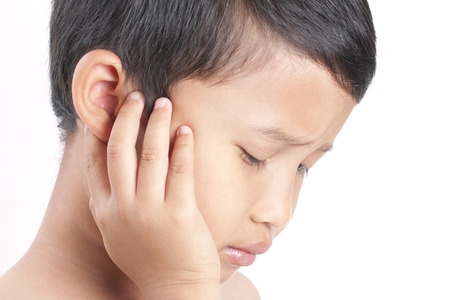Spring is in full bloom all around the country – flowers are blooming, birds are singing and the days are getting warmer. It also brings seasonal allergies along with rain and erratic temperature shifts, all of which can have an impact on your ears and hearing.
 Changes in barometric pressure
Changes in barometric pressure
When the barometric pressure drops rapidly, the pressure outside your ears goes down before the pressure inside your ears can acclimate. The result is a pressure imbalance, which can cause a sensation of fullness or popping in the ears. Seasonal allergies exacerbate the problem by causing a narrowing of the Eustachian tube, making equalization of pressure even more difficult.
Seasonal allergies and hearing loss
Allergies are another unwanted accompaniment to spring. While most think of allergies as sneezing and sinus pressure, it is important to remember that the ears and sinuses are interconnected.
“People take it for granted that allergies cause sneezing in the nose and itching in the eyes. Yet they seem surprised to learn allergies inevitably affect their ears as well,” said Dr. Ronna Fisher, Au.D.
According to the Asthma and Allergy Foundation, seasonal allergies affect between 10 and 30 percent of adults in the U.S. and as many as 40 percent of children, which means as many as 60 million people in the U.S. suffer from not only sneezing, itchy eyes and sinus pressure, but ear pressure as well. The warm, wet weather of spring causes trees to produce more pollen. For those who are allergic, the immune system reacts by producing antibodies.
Those antibodies release a substance called histamine, which leads to increased mucus production. Unfortunately allergies also cause swelling of the Eustachian tubes, meaning they don’t open as they should. This causes the Eustachian tubes to become inflammed and which can result in a feeling of fullness and pressure in the ears that can negatively affect hearing.
 How to cope with stuffy ears
How to cope with stuffy ears
Over-the-counter antihistamines or decongestants might help relieve the problem of excess fluid if it is caused by allergies.
The excess fluid build-up as a result of allergies or barometric pressure changes can not only cause a feeling of fullness or pressure, but can also cause conductive hearing loss as a result of sound being prevented from traveling to the cochlea. Another risk of excessive fluid build-up when the Eustachian tubes aren’t functioning properly is ear infections; the increased fluid provides an ideal environment for bacteria to thrive.
 Moisture impacts hearing aids
Moisture impacts hearing aids
Spring also brings challenges for those with hearing aids, as the rise in allergens and wet weather means paying closer attention to maintenance and upkeep of hearing devices. For example, increased allergens can clog microphone ports in hearing aids, so be sure to clean hearing aids regularly.
Along with allergens, spring is accompanied by heat, humidity, rain and extreme temperature changes. Moisture is the enemy of hearing aids, as it can build up in the tubing, damage the microphone and receiver and cause static. In addition, warm weather means more ear wax build-up, which can clog the sound openings.
How to keep hearing aids dry
To make sure hearing aids stay working properly when the weather changes, be sure to wear a hat or use an umbrella when going out in the rain. You’ll also want to dry your hair and ears thoroughly after showering prior to putting in your hearing aids. Lastly, in addition to regular cleaning, use a hearing aid dehumidifier overnight or anytime your hearing aids are exposed to excess moisture.
Source: Healthy Hearing
